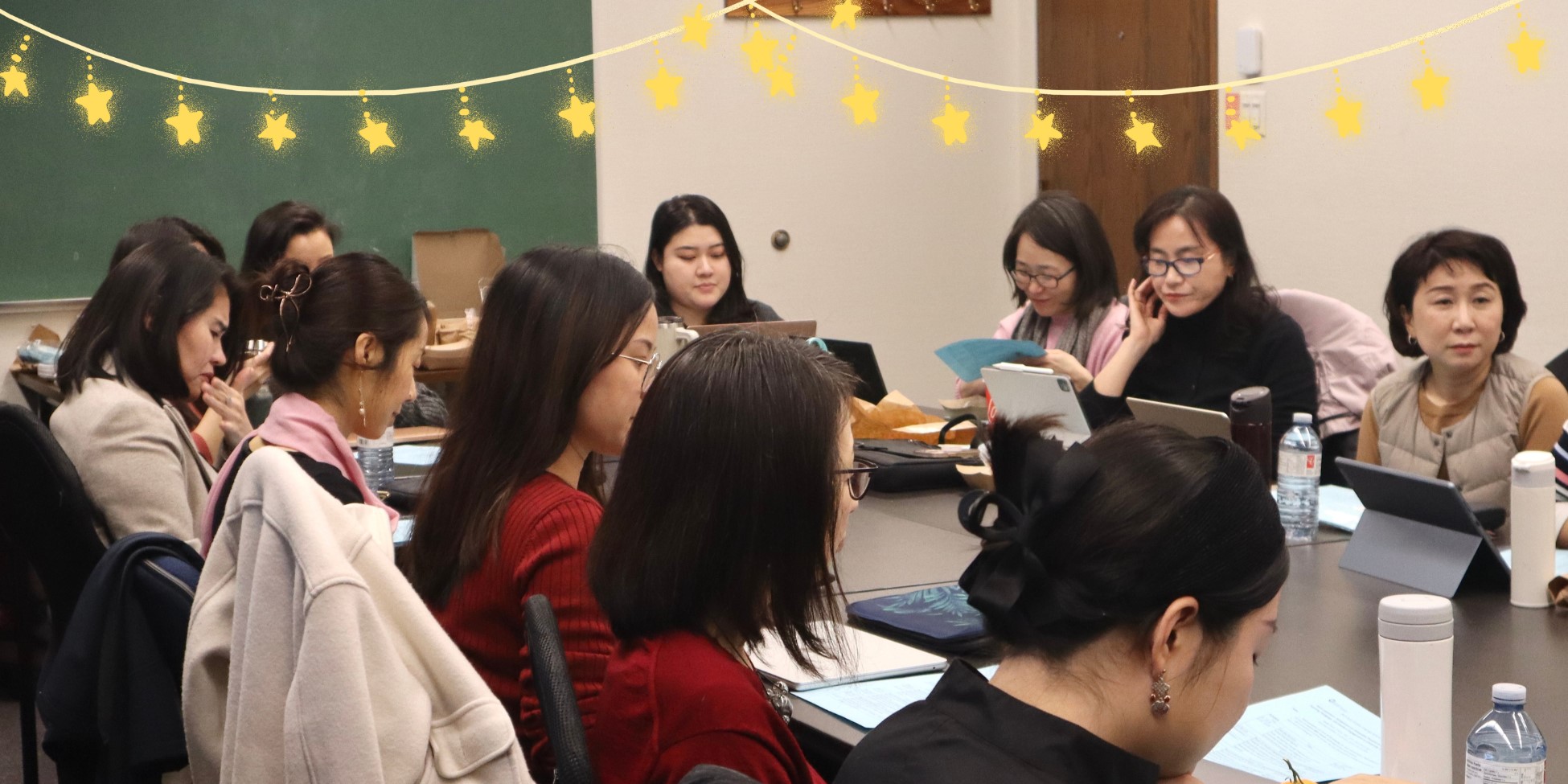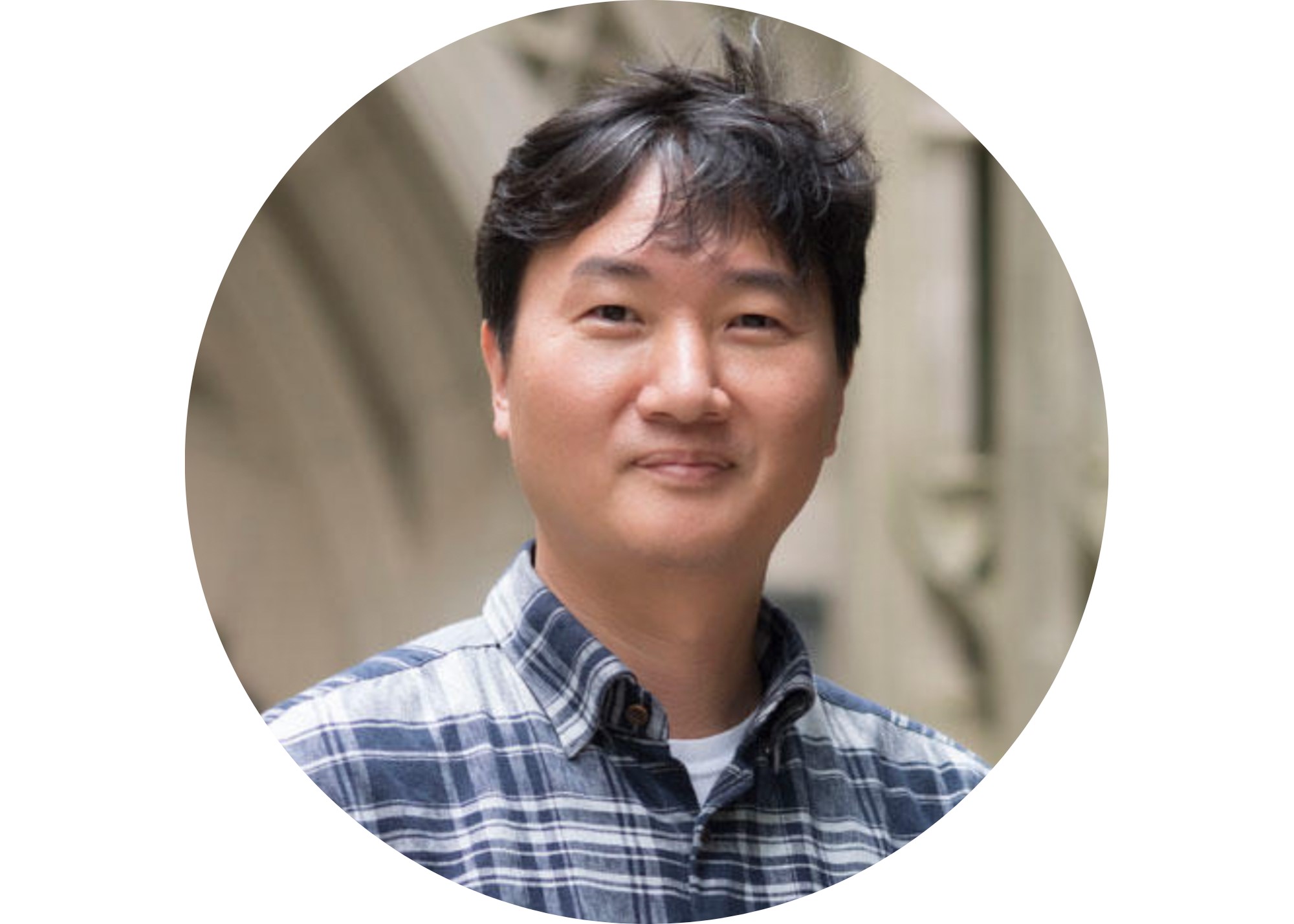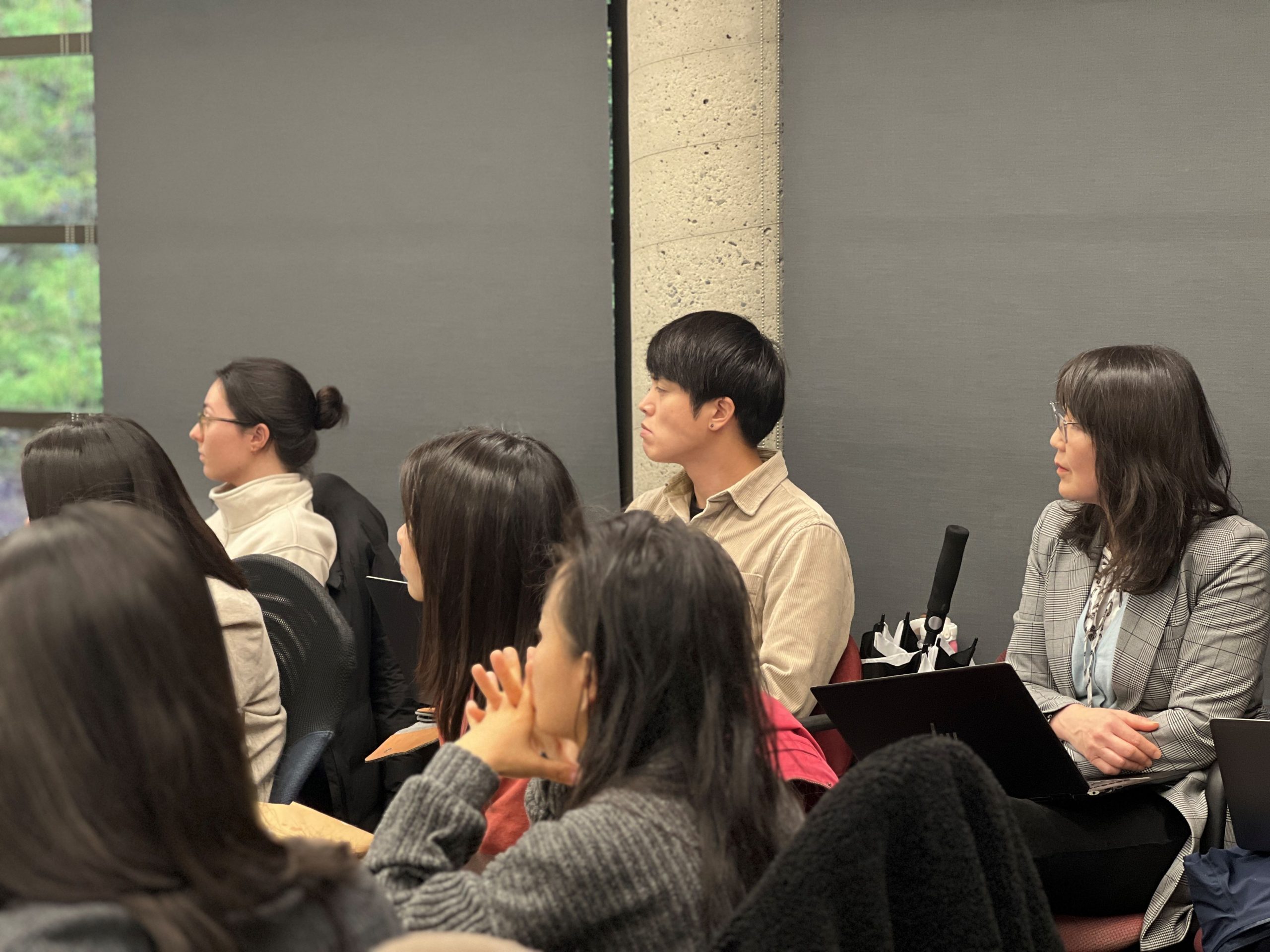On December 13, 2024, the inaugural Asian Studies Language Symposium brought together educators and experts from the Mandarin, Cantonese, Korean, and Japanese Language Programs for a truly inspiring event. With the theme Swim Upstream, the symposium pushed the boundaries of traditional language teaching, emphasizing student engagement, creative pedagogy, and meaningful learning outcomes. The event was filled with fresh ideas and dynamic discussions with a shared passion for language education that united both experienced lecturers and enthusiastic students.
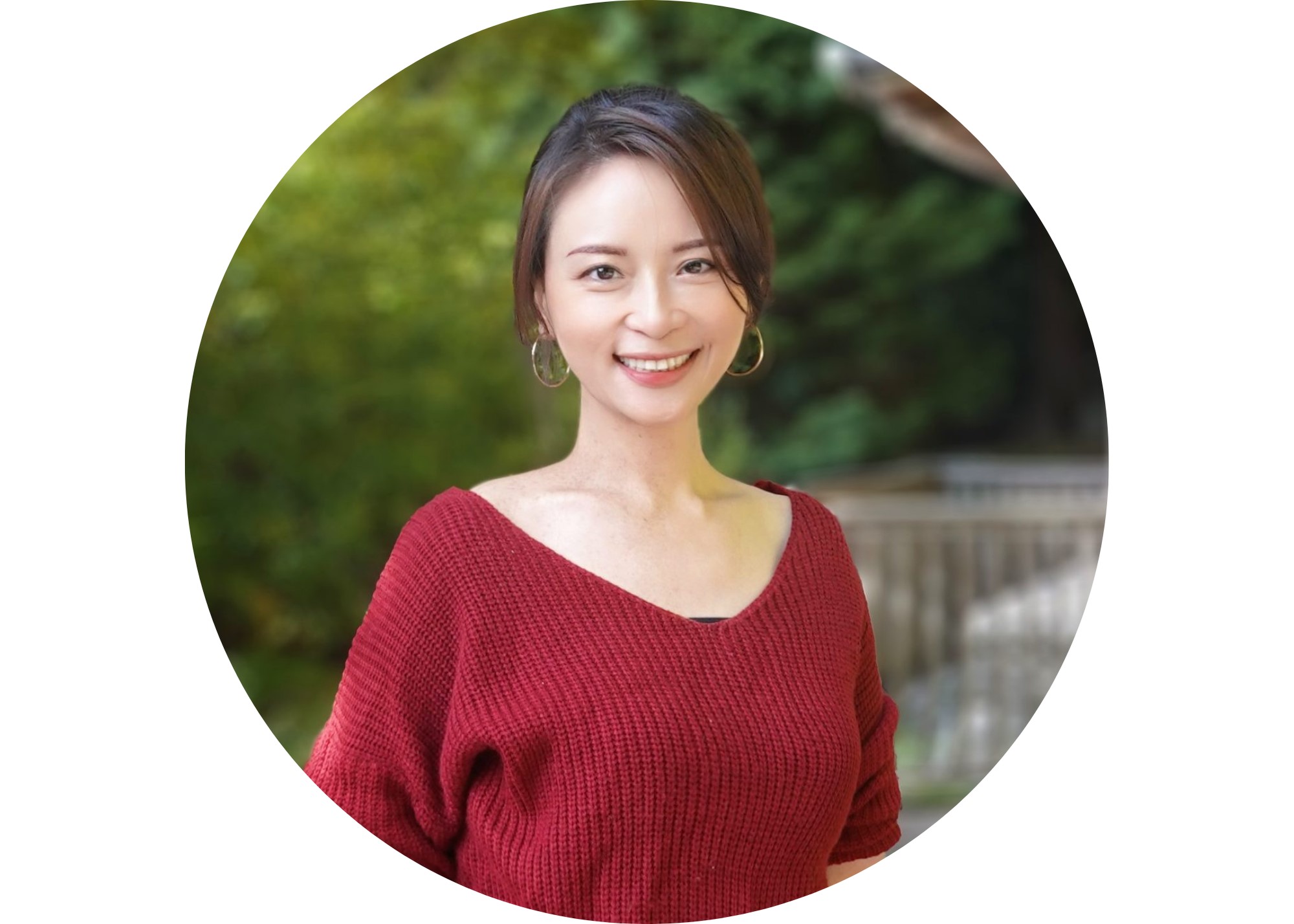

Professor Hsiang-ning Wang is celebrated for her dedication and leadership in bringing the inaugural Asian Studies Language Symposium to life
The event kicked off with heartfelt remarks from Professor Qian Wang, Chinese Language Program (CLP) Director, who shared the story behind the symposium’s creation and expressed deep gratitude to Professor Hsiang-ning Wang, Chinese Language Program Coordinator, for her vision and dedication in making it a reality. The audience celebrated this milestone moment with Professor Hsiang-ning Wang’s leadership recognized as the driving force behind bringing this vision to life.
A special moment followed with a warm welcome to Senior Lecturer Ho Jung Choi, Director of Princeton University’s Korean Language Program. In his speech, Lecturer Choi shared his success in encouraging students to pursue internships during their language studies. “Internships are a game-changer,” he said, emphasizing how they motivate students to apply their target language in real-world settings outside of the classroom.
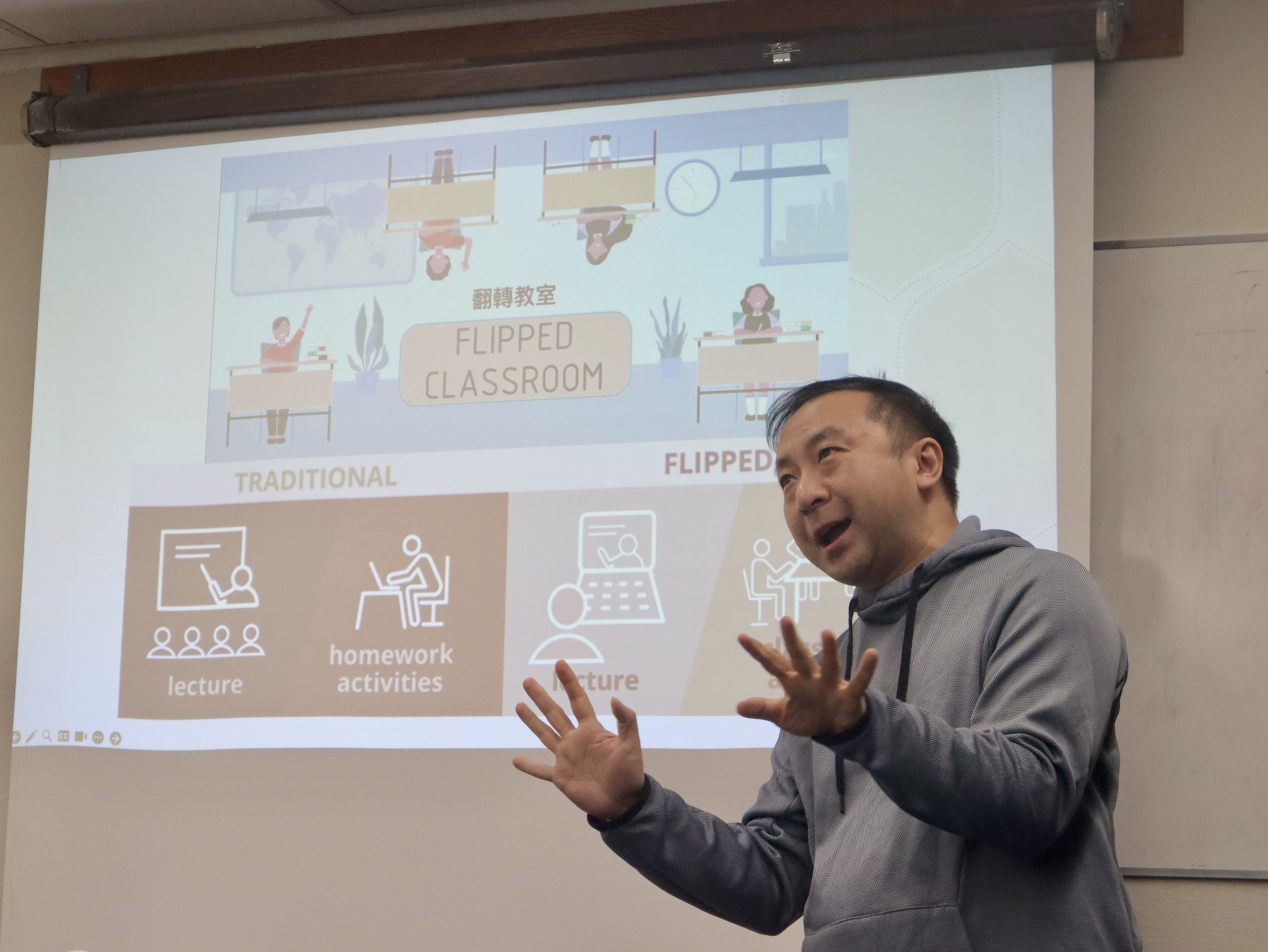

Lecturer Raymond Pai from the Cantonese Language Program discusses the success of flipping his classroom to boost student engagement.
Lecturer Raymond Pai from the Cantonese Language Program brought thrilling energy to the symposium with his innovative approach to “flipping the classroom.” By moving traditional lectures online and dedicating class time to interactive, student-led activities, Lecturer Pai transformed the learning experience into one where students thrived. Emphasizing the need for modern, engaging teaching methods with “out with the old and in with the new,” this shift not only encouraged students to take ownership of their learning but inspired them to showcase their language skills through creative, passion-driven projects. The impact was undeniable, as students became more engaged, motivated, and confident as they applied their language knowledge to the projects they genuinely cared about, demonstrating the power of innovation in language education.
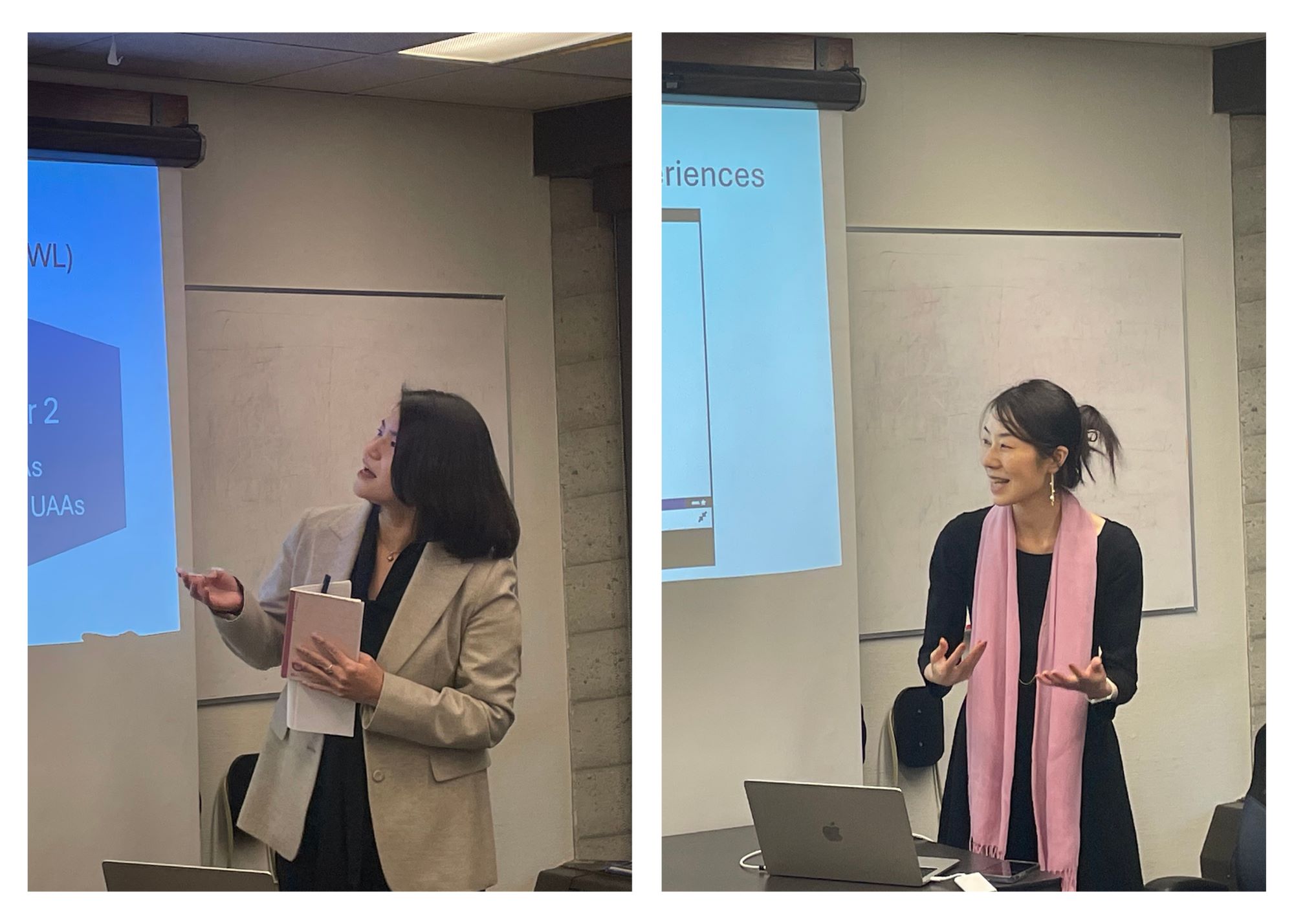

Lecturer Ihhwa Kim (Left) and Lecturer Misuzu Kazama (Right) from the Japanese Language Program discuss the innovative practice of applying Anime Bunny role-play in classrooms.
Lecturer Ihhwa Kim and Lecturer Misuzu Kazama from the Japanese Language Program wowed attendees with their presentations on inclusive and interactive learning tools. Their standout project? A playful yet practical Anime Bunny role-play activity on Canvas, where students practiced Japanese with teaching assistants and instructors using fun, culturally relevant scenarios. It was a hit with students and showed how creativity can spark better learning outcomes.
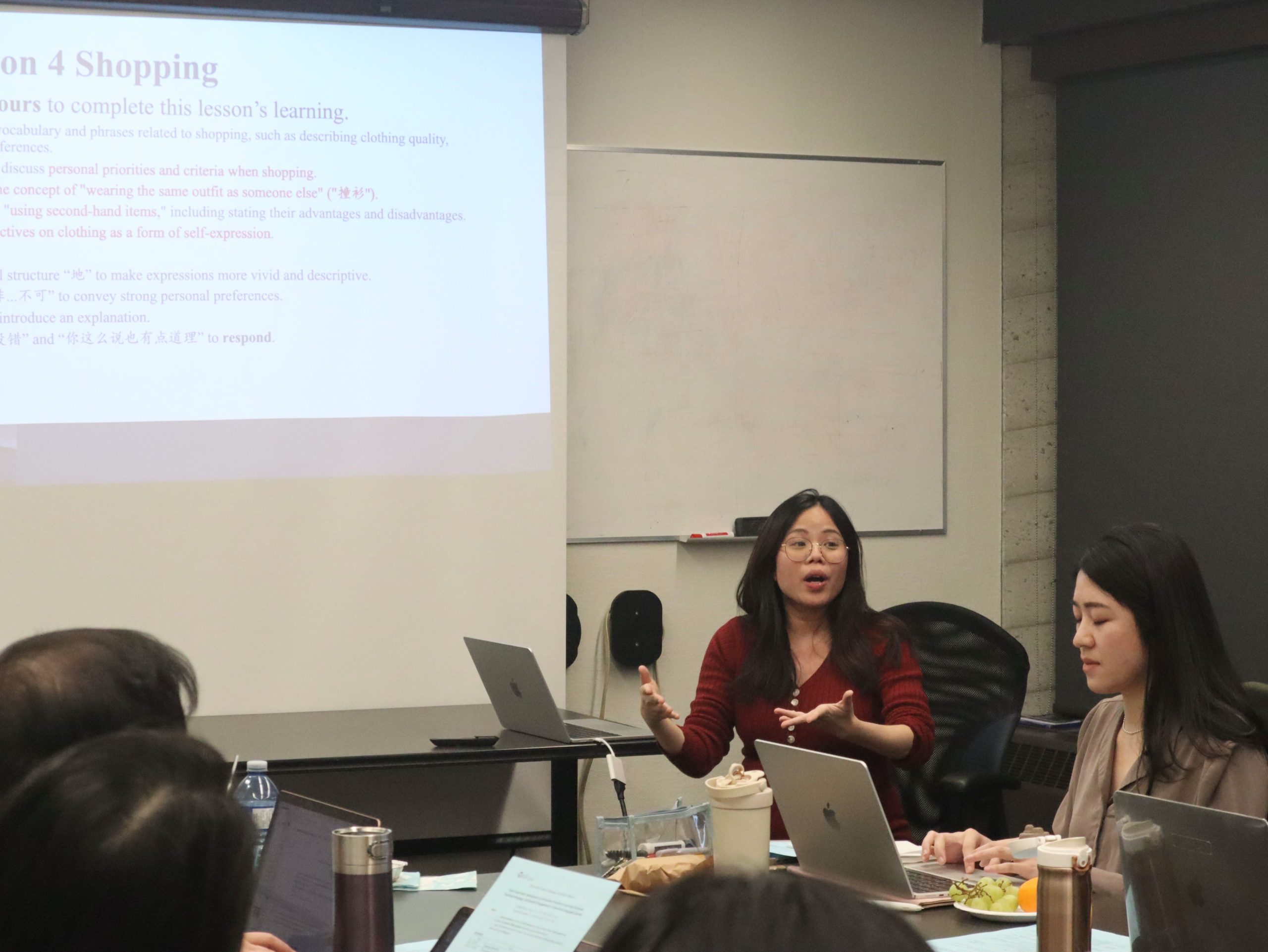

Lecturer Li-jung Lee explains how humorous, relatable scenarios help intermediate learners connect with the Chinese language on a deeper level.
Chinese Language Lecturer Li-jung Lee shared her journey in creating open educational resources for intermediate learners. By designing materials that are practical, engaging, and culturally relevant, Lecturer Lee aims to make language learning both effective and enjoyable. She highlighted how incorporating real-life scenarios into her teaching materials, both positive and humorous negative experiences, greatly helped students build a deeper connection to the target language.
For example, instead of limiting classroom discussions to traditional, fictional or idealized topics, Lecturer Lee encouraged her students to create narratives about amusing experiences, such as missing the bus on a rainy day or getting a bad haircut. These relatable situations provide a platform for students to express themselves authentically and practice nuanced sentence structures that reflect everyday language use.
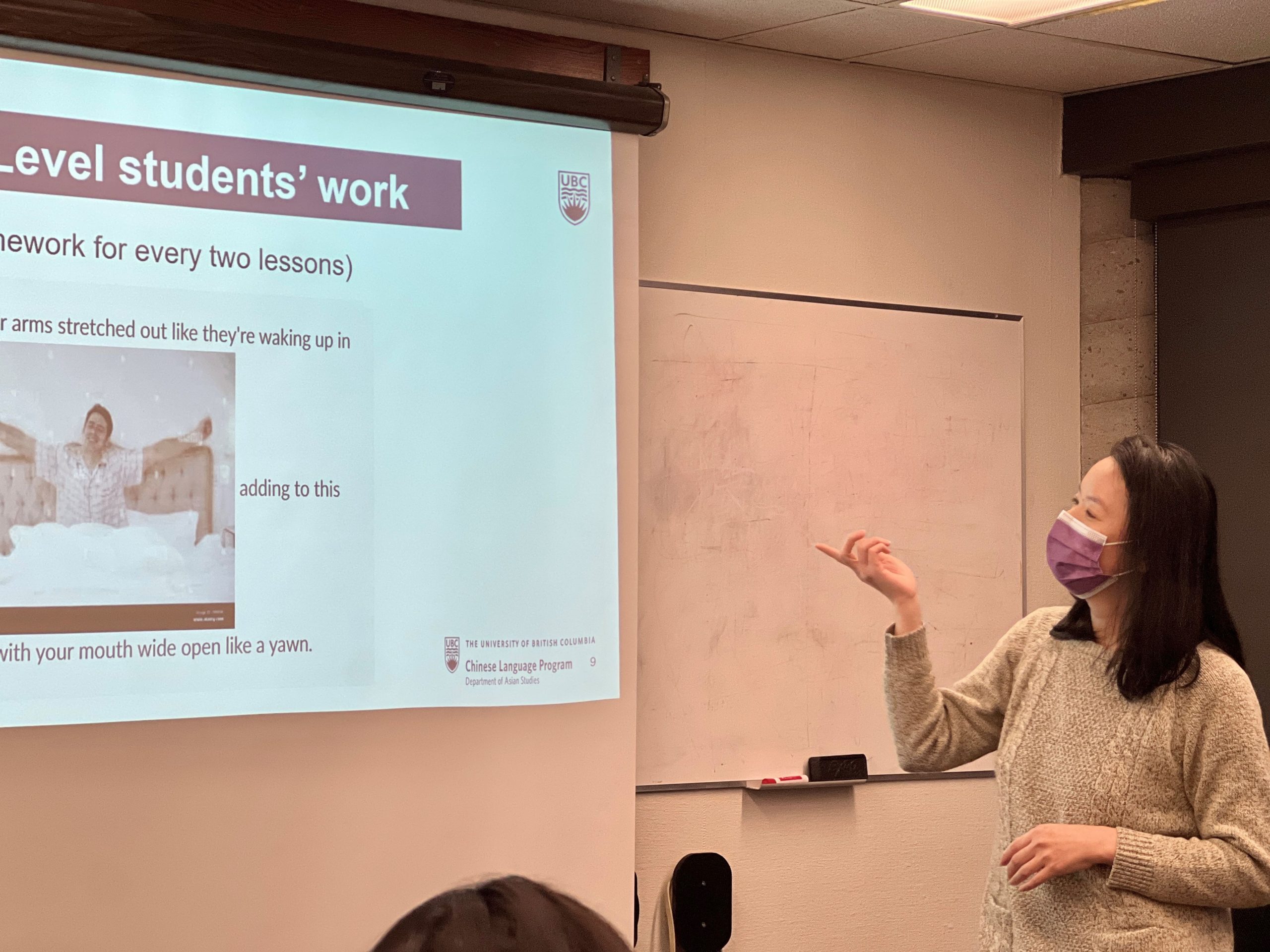

Lecturer Pihua Lin highlights the importance of Chinese radicals as the building blocks of character learning, fostering a stronger foundation for beginners.
Lecturer Pihua Lin, a cornerstone of the lower-level CLP courses, reimagined how Chinese characters are taught. Her approach focused on radicals, which are the building blocks of Chinese characters, to help students understand and memorize characters more effectively. “Master the basics, and everything else falls into place,” Lecturer Lin shared.
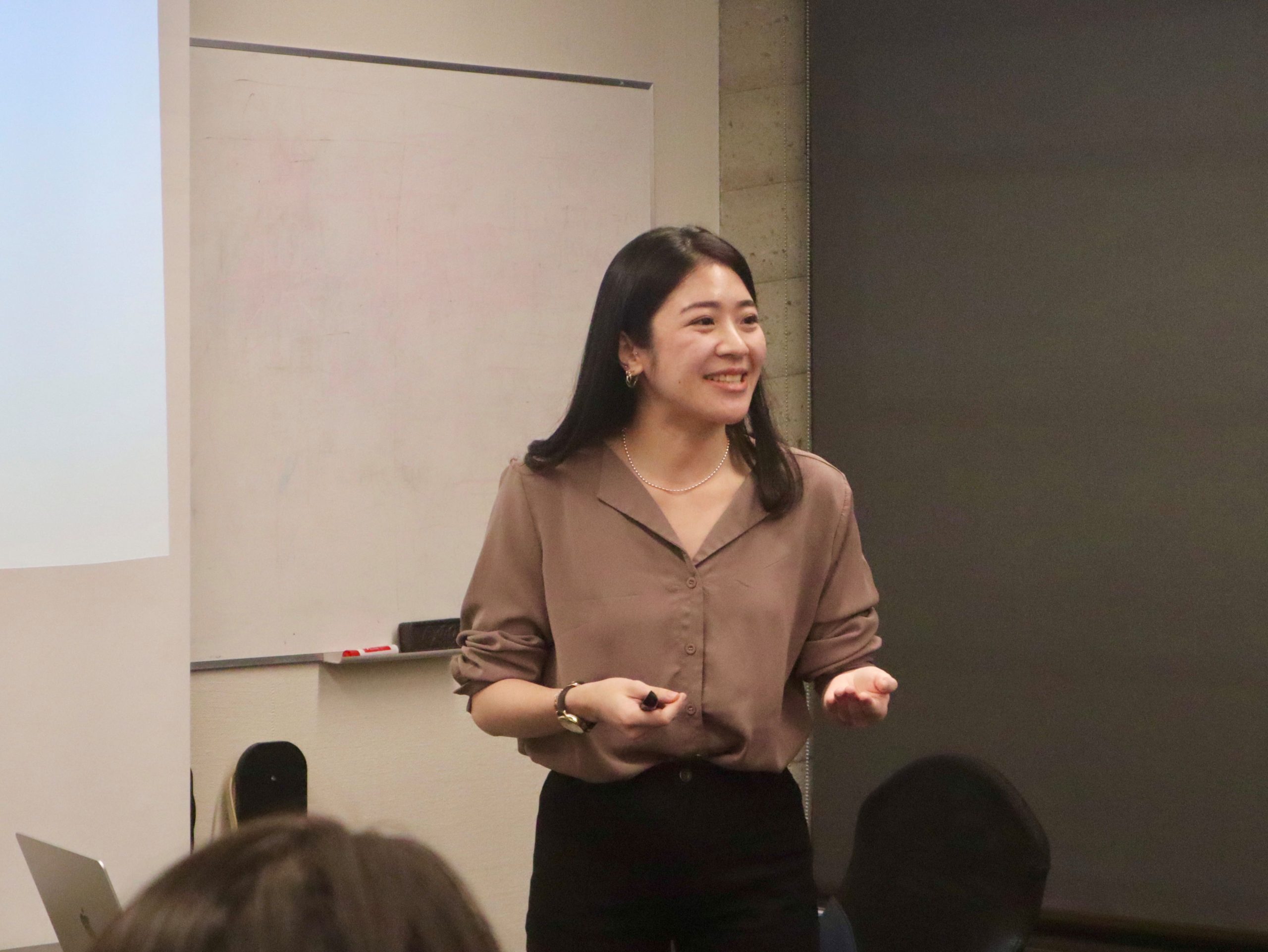

Lecturer Wenhui Chen shares how adjusting pinyin and character learning exercises helps students gain confidence and improve oral proficiency.
Closing the panel, Lecturer Wen-Hui Chen introduced an innovative approach to teaching pinyin and Chinese characters simultaneously from the very beginning of language instruction. By integrating these two foundational elements, Lecturer Chen effectively shortened the learning curve for her students, enabling them to develop a more cohesive understanding of pronunciation and written language. This method not only enhanced students’ oral proficiency but also significantly boosted their confidence in speaking and applying the language in more practical contexts.
The 2024 Asian Studies Language Symposium featured an inspiring lineup of presenters who shared innovative approaches to language teaching. Here is a quick look at the topics and speakers from each panel:
Panel 1: Student Engagement in Web-based Courses/Flipped Courses
- Japanese Language Lecturers Nick Hall, Ihhwa Kim, Misuzu Kazama: “Transforming Language Learning: Inclusive Interactive Web-Based Course Materials for Studying Elementary Japanese”
- Cantonese Language lecturer Raymond Pai: “Engaging students beyond classroom walls: Lessons learned from Cantonese flipped classrooms
Panel 2: Rethinking Pedagogy I – Learning Material & Pedagogy Design
- Chinese Language Lecturer Li-jung Lee: “Open Educational Resource Development at the Intermediate Level”
- Chinese Language Lecturer Pihua Lin: “Rethinking Chinese Character Pedagogy for Beginners”
- Chinese Language Lecturer Wen-Hui Chen: “Simplifying the Pinyin Learning Curve, Enhancing Pronunciation and Oral Fluency for Beginning Learners”
Panel 3: Rethinking Pedagogy II – EDI, Task-based Approach, and Use of AI
- CLP Coordinator Hsiang-ning Sunnie Wang: “Starting Strong: Integrating EDI Principles into Inclusive Syllabus and First-Class Activities to Engage Heritage Students from Day One”
- Japanese Language Lecturer Noriyuki Kawada: “Incorporating EDI in Advanced Japanese: Challenges, Strategies, and Future Directions”
- Chinese Language Lecturer Shu-ting Hsu: “Elevating Literacy: Task-Based Approaches to Enhance Reading and Writing Skills”
- Japanese Language Assistant Professor Hiromi Aoki: “Exploring Student Engagement with Generative AI in Japanese Language Writing”
Panel 4: Helping Students Navigate Their Learning Process and Outcome
- Korean Language Lecturer Eurie Shin: “Cultivating Self-Directed Learning Skills”
- Korean Language Lecturer Jeonghye Son: “Remote Collaborative Learning: Online Travel Fair with Students in the USA”
- Chinese Language Lecturer Hongyang Tao: “Integrating the Flipped Classroom Model, Project-based Learning, and AI Image Generation in Post-secondary Chinese Language Courses”
Panel 5: Strategies for Student Engagement
- Chinese Language Lecturer Chia-Yin Yu: “From Passive to Active: Engaging Class Activities for the Digital-Native Generation through Slido”
- Chinese Language Lecturer Li Yang: “Seating Arrangement in Language Classroom”
- Chinese Language Lecturer Shuyu Li: “Active Learning Techniques in Business Chinese: Enhancing Engagement and Practical Skills”
For the UBC community, the 2024 Asian Studies Language Symposium represented a pivotal moment in language education. It demonstrated how the Asian Language Programs foster supportive, student-centered environments where creativity and collaboration flourish in and out of the classroom. The symposium showcased UBC’s leadership in language education, highlighting how innovative teaching practices can inspire both educators and learners alike.
The 2024 Asian Studies Language Symposium was more than just an event—it was a celebration of a new chapter in language education filled with collaboration and innovation for the future of language teaching. From inspiring ideas to practical strategies, the day left attendees energized and ready to reimagine their classrooms. With such an incredible start, the symposium aims to continue growing into an event for educators passionate about pushing boundaries and creating engaging learning experiences.
We can’t wait to see what next year’s symposium has in store! Please stay tuned with our social media @ubcchinese with more exciting events to come!
